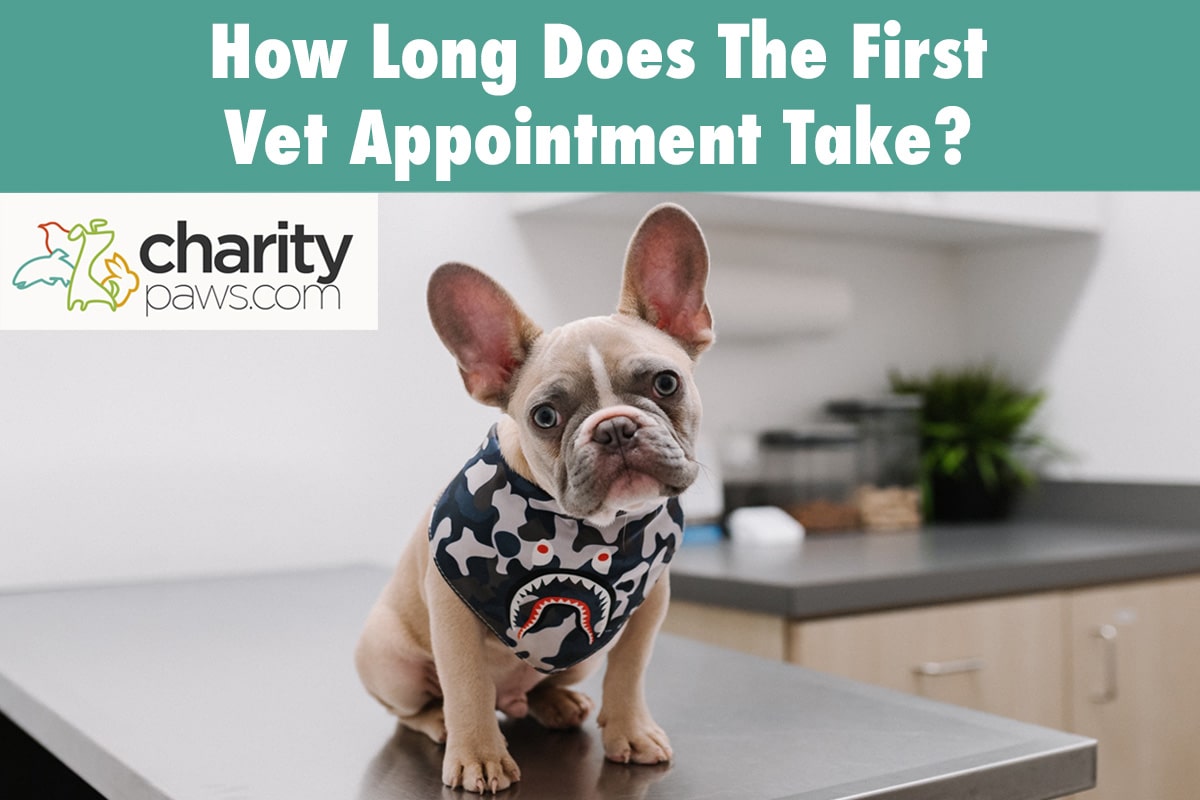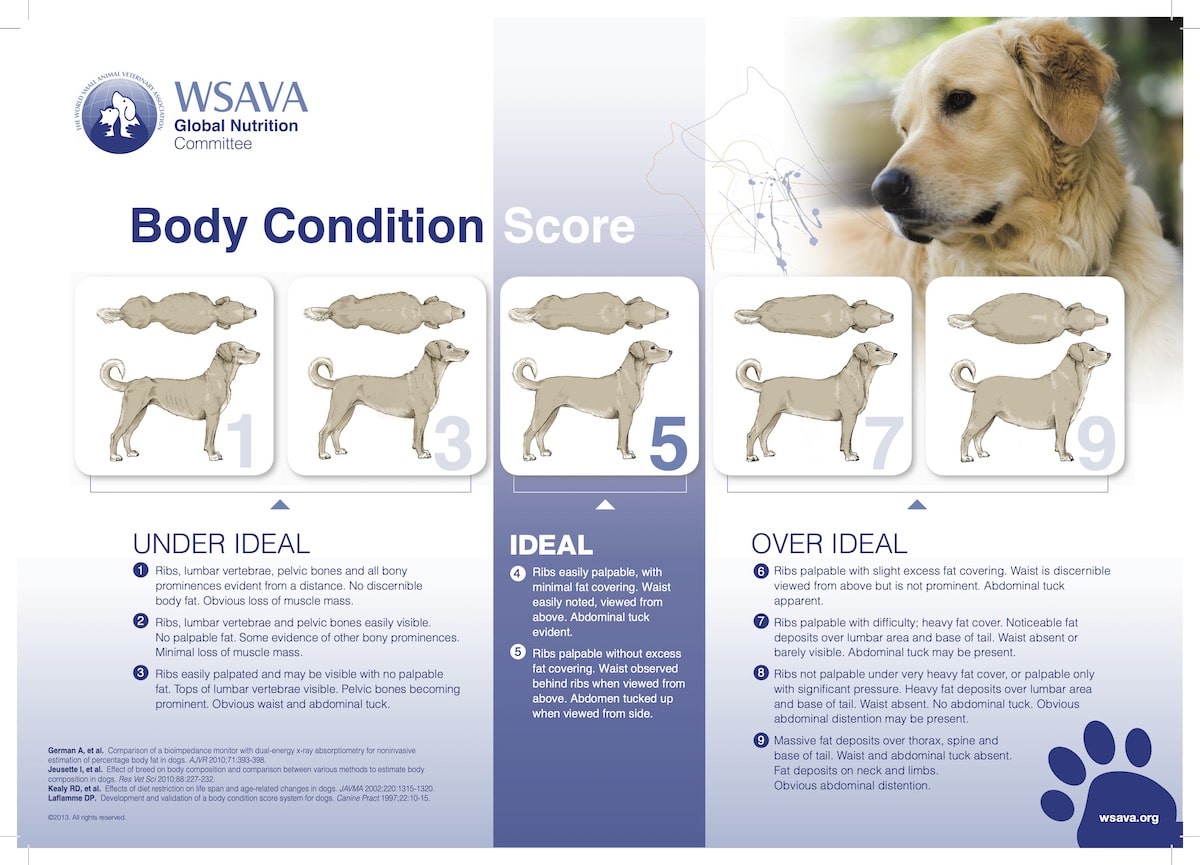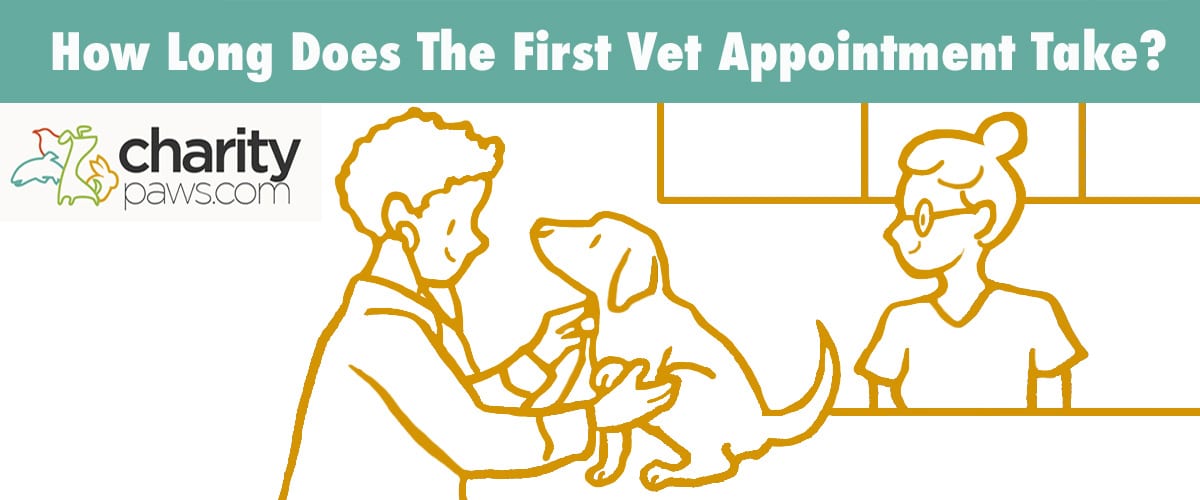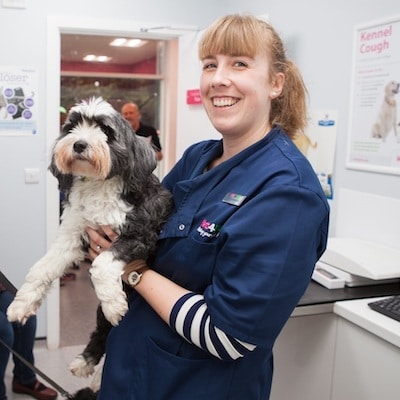Bringing a new puppy into your home is a very exciting time.
As well as all the cuddles and playtime, it’s important to think about some of the practicalities of puppy ownership.
One of the things to prioritize in the early days is a trip to your local vet for your puppy’s first appointment.
Let’s explore what to expect during your puppy’s first visit to the vet.

When Should Your Puppy See The Vet
Many puppies will have had some sort of a check over by a vet while still with the rescue center or breeder (if they are reputable).
You should still get your own veterinarian to check your puppy within the first week of having him at home.
This will help to identify any potential problems sooner rather than later, as well as allow you to ask any questions you might have.
Make sure you bring any paperwork that you have with you.
The breeder should give you a written vaccination record if your pup has already had his first vaccinations, plus a record of any anti-parasite treatment they might have received.
This will help your vet know what your puppy needs next and also when.
If you have any concerns about your puppy ahead of this routine appointment, then you should get them seen sooner.
Very young dogs can go downhill quite quickly if they are sick, so contact your veterinarian and get an appointment sooner if you need one.
What To Expect At Puppy’s First Vet Visit
There are lots of things to discuss at your pup’s first vet visit!
Most standard puppy appointments last somewhere between 15 and 30 minutes, depending on how long your veterinary clinic routinely allocates for these.
It’s helpful if you can think about your questions and any potential concerns you have in advance.
This will help you to use the time most effectively.
To give you an idea of what to expect, the following is a list of some of the things you and your vet should discuss:
Physical Examination
A physical examination of your puppy will be performed, to check for any obvious abnormalities or indicators of disease.
Mention to your veterinarian if you have any specific concerns about your puppy that you have noticed at home.
Your vet will check that your pup has a clean nose, eyes, and ears, as well as a clean coat.
They will also look at your puppy’s teeth to check for any malocclusions, listen to their heart for any abnormalities and feel their tummy too.
The genitals are checked to confirm the sex of your puppy and to check whether the testicles have descended yet if they are male.
Your vet will usually check for a microchip too by scanning your puppy.
If your puppy doesn’t yet have a chip, then this will be recommended.
It’s important to recognize that there are limitations to this exam.
For example, your vet will not be able to tell what your puppy’s hips and other joints are like (especially if they are very young) unless there is a serious abnormality.
Some conditions like hip dysplasia can take time to become apparent.
Eyesight and hearing are also not usually tested.
Weight
Your puppy’s weight will be checked at his first appointment.
This will allow your vet to work out accurate doses for preventative parasite treatments, but also allow them to track weight gain when your pup comes in for subsequent appointments.
Your vet will use your pup’s weight as well as his body condition score to advise you on whether he’s doing well, or whether there are any concerns.

This may be an opportunity to discuss diet with your vet, and check whether you are feeding appropriately.
Vaccinations
Your vet will be able to advise you on the correct timings for the vaccination of your puppy, including the age they can start these jabs and the intervals required between doses.
They will also advise you on the diseases that your pup should be vaccinated for depending on your geographical location and your dog’s individual risk.
Your puppy may have already had some vaccinations with his breeder or rescue center so show your vet the paperwork for these.
Anti-Parasite Treatment
Ask your vet about their recommendations for parasite treatment for your puppy.
Routine worming is usually recommended, even in young puppies that have not yet been outside.
Pups can carry roundworms that have been transmitted to them via the placenta while still in the womb and also from their mother’s milk.
Other parasites commonly seen in puppies include ear mites and fleas so your vet will check for these as part of their examination.
Heartworm and ticks may also be discussed.
Pet Insurance And Preventative Health Care Plans
Ask what your vet can offer you in terms of preventative health care plans.
Many practices provide health care plans aimed at spreading the cost of routine parasite treatments and vaccinations.
These plans usually help you to make some cost savings too.
You can discuss this in more detail with the reception or front desk.
Pet insurance is advised for all dogs, but your vet will be able to talk about it with you further.
Also Read: What to do if you cannot afford vet care.
Insurance is there to help with the cost of accidents and illnesses, whereas your health care plan is there for routine day-to-day preventative care.
Taking insurance out promptly is advised, ideally before your puppy develops any health issues.
If you rescued a dog from a dog rescue group, you may have been given a month or more of pet insurance, which you would need to continue at your own cost after the month is over.
Otherwise, you can end up in a position where your puppy isn’t covered for something as it is classed as a pre-existing condition.
Neutering
Your vet may discuss this with you at your puppy’s first appointment.
It’s worth thinking about neutering even though it might feel a long way off.
Your vet can let you know when the ideal time for this surgery is and so that you can get an idea of what the procedure involves.
If you are not planning on breeding your dog, then neutering will usually be advised but discuss the pros and cons with your vet.
Also Read: Can you neuter an older dog?
Puppy’s First Vet Visit Average Costs
Costs can vary between different clinics so it will be hard for us to go into specifics here.
The best thing would be to call the veterinary hospitals local to you for advice.
Some clinics do a ‘puppy pack‘, a set price to cover all the things you are likely to need for a new pup.
Other vets run pet health care programs where you pay a direct debit monthly to cover initial as well as ongoing preventative treatments.
While others will charge out the items individually as you need them.
The main things you may need to budget for when your puppy first visits the vet are:
- Your puppy’s vaccination course – including core vaccines like rabies, as well as kennel cough
- Anti-parasite treatments – including fleas, ticks, intestinal worms, and heartworms
- A microchip if this hasn’t yet been done
- Any additional recommendations, like nail trims or ear drops for example depending on what your vet finds during their examination
If you are struggling to see how you might afford this initial preventative treatment, then you may need to reconsider whether a dog is right for you.
Your pup will need a lifetime of preventative treatments, as well as the finance in place to treat him when he’s sick.
Should I Take My Rescue Puppy For A Vet Check?
Yes, it is still advisable to take your rescue puppy for a vet check, even if they have already been assessed by the rescue center’s veterinary team.
Your visit with your own veterinarian will allow you to discuss the points we mentioned earlier, and to ask your vet any questions you might have.
It also lets you put your preventative health care plan in place.
The first vet visit is also an important part of your puppy’s socialization.
Going to the vet regularly as a pup will help him to become used to being examined, as well as allow him to get used to the sights and smells of a veterinary hospital.
Your new puppy will eventually learn your veterinarian and so future visits will be less stressful for them.
Try and make sure the experience is as positive as possible, rewarding him for good behavior while he’s there.
Registering with your local vet as soon as possible is a good idea generally so that you can then access treatment in the case of an emergency, especially out of hours.
Conclusion On How Long The First Vet Appointment Should Take

Your puppy’s first trip to the vet is important for many reasons.
It helps to detect any potential health problems early on, allows your vet to recommend an ongoing preventative treatment plan, gives you a chance to ask questions, and is also good for your puppy’s socialization.
Contact your local veterinary clinic to get your pup schedules for their first vet visit.
FAQs
What is the recommendation for puppy first vet visit age?
Your puppy can visit the vet for the first time at any age!
However, most owners don’t usually pick their puppy up until they are at least 8 weeks of age, so most visits occur after this point.
How soon should you take your new puppy to the vet?
Get your puppy checked over by a vet within the first week of owning him, so that any problems can be identified promptly.
It will also allow your vet to discuss preventative treatment and answer any questions you might have.

